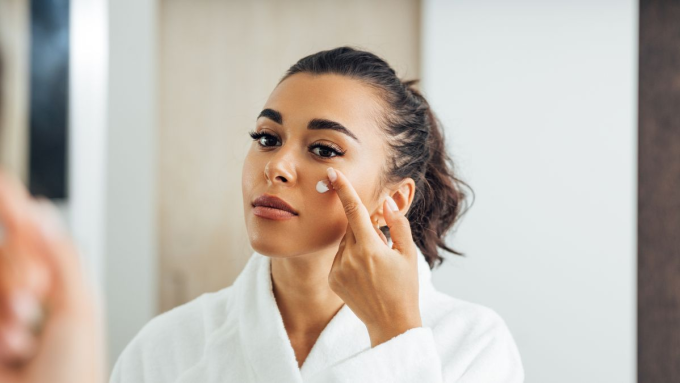Skipping sunscreen in winter could leave your skin unprotected and at risk of cancer, according to British dermatologists.
Most people don't think about using sunscreen in winter. However, according to Dr Paul Banwell, former director of the Melanoma and Skin Cancer Unit - MASCU (UK), despite the colder, darker winter weather, we are still at risk of skin cancer.
There are several types of skin cancer, including melanoma, according to the UK National Health Service. One of the main risk factors is UV radiation from the sun. Other factors include age, pale skin, a large number of moles and a family history of skin cancer.
“Even when it’s cold or overcast, UV rays can still damage our skin. UV rays are present all year round and can penetrate clouds and fog,” says Banwell.
So not applying sunscreen - a factor in preventing skin cancer - in winter can increase people's risk of getting the disease. In addition to forgetting to apply sunscreen in winter, many people apply too thin a layer, which also reduces the ability to protect the skin.

Skipping sunscreen in winter could leave your skin unprotected from cancer. Photo: SCU
Skin cancer is now one of the most common cancers in the UK, with 16,000 new cases diagnosed each year. In the same country, the incidence of skin cancer has increased by around a third in the past decade.
Banwell recommends that people use sunscreen every day, all year round. When choosing a sunscreen, whether organic or chemical, users should look for one that offers broad-spectrum protection to block both UVA and UVB rays. To protect against UV radiation and maximize skin protection, sunscreen should be applied to all areas exposed to the sun, even the scalp.
Because there are many types of skin cancer, the symptoms vary, says Dr. But he advises looking out for sores that don’t heal within four weeks or areas of skin that look unusual, are painful, itchy, bleed, or crust over. He also recommends getting checked out for any pigmented moles that change color, size, or border, or that bleed, become raised, or crust over.
“If you are concerned about an area of skin on your body, please seek professional advice,” says Banwell.
Khanh Linh (According to Mirror )
Source link


![[Photo] Prime Minister Pham Minh Chinh starts construction of vital highway through Thai Binh and Nam Dinh](https://vphoto.vietnam.vn/thumb/1200x675/vietnam/resource/IMAGE/2025/5/12/52d98584ccea4c8dbf7c7f7484433af5)
![[Photo] Prime Minister Pham Minh Chinh receives Swedish Minister of International Development Cooperation and Foreign Trade](https://vphoto.vietnam.vn/thumb/1200x675/vietnam/resource/IMAGE/2025/5/12/ae50d0bb57584fd1bbe1cd77d9ad6d97)
![[Photo] Prime Minister Pham Minh Chinh works with the Standing Committee of Thai Binh Provincial Party Committee](https://vphoto.vietnam.vn/thumb/1200x675/vietnam/resource/IMAGE/2025/5/12/f514ab990c544e05a446f77bba59c7d1)



















![[Video] International Nurses Day (May 12): Honoring the silent contributions](https://vphoto.vietnam.vn/thumb/402x226/vietnam/resource/IMAGE/2025/5/12/e417af33166f4fa28057c788dcd9086f)











































































Comment (0)